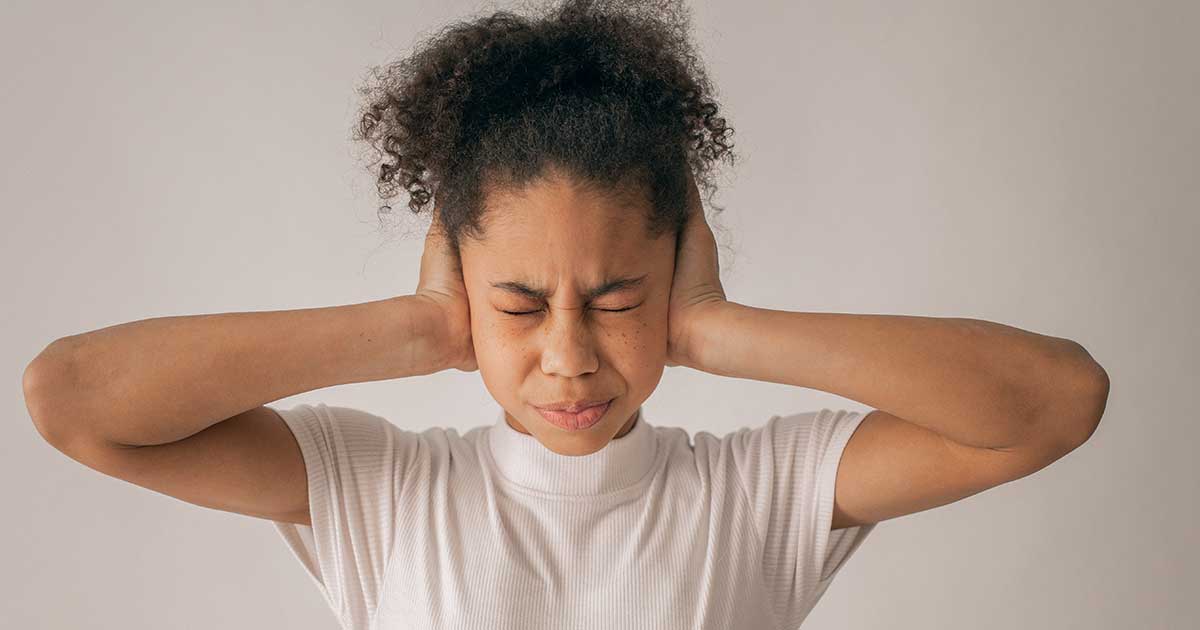The most important facts about “Tips for annoying ear pressure”
- Unpleasant ear pressure occurs, particularly during take-off and landing.
- Chewing gum or yawning can help to equalize the pressure. Swallowing hard or holding your nose and exhaling can also help.
- A nasal spray with a decongestant effect can help with a blocked nose.
- It is also advisable to avoid alcohol and coffee, as these can dry out the mucous membranes.
- Children need special attention and help with ear pressure.
- Ear pressure can occur more frequently with colds or allergies.
- If you have severe symptoms, you should consult a doctor before departure.
- If you have any unclear symptoms on board, inform the cabin crew.
Did you have a flight delay or cancellation? Check your rights now and increase your chances of compensation
Many air travellers know the feeling only too well. The unpleasant ear pressure when flying in an aeroplane. This feeling is particularly acute during take-off and landing. It can also lead to headaches after the flight. The reason for this is the changing air pressure, which increases or decreases depending on the rise or fall in altitude. With the following tricks, you can protect yourself from this unpleasant feeling and learn the best way to get rid of ear pressure after a flight.
Why do you get an earache on a plane?
Travelling by plane triggers mixed feelings in people. Some enjoy soaring above the clouds, others are happy when the aircraft lands safely. What all passengers can probably agree on, however, is that the unpleasant throbbing in the ears caused by the pressure during the landing approach is a burden. This feeling is caused by the fact that the pressure in the cabin increases as the aircraft descends. The cabin pressure therefore increases the lower the aircraft flies. This can cause the eardrum to bulge inwards, as there is no equalization between the pressure in the middle ear and the external pressure. This feeling can cause earache in air travellers, which only goes away after a while. If there is pressure in the ears after a flight due to a cold, you should have nose drops with you. These help best and have a decongestant effect down to the throat area. However, in the case of severe swelling, such as a middle ear infection, the drops often do not help and pressure equalization is difficult or impossible. This can lead to severe pain during the flight. It is therefore advisable to avoid travelling by plane with acute infections, if possible.
Can the eardrum burst when flying?
If the air pressure changes while flying, the ear canal automatically tries to equalize the pressure. Some areas of the back of the ear are sealed off from the outside by the eardrum. As already described, excess pressure builds up in the ear as the aircraft climbs, while negative pressure builds up as the aircraft descends. The eardrum stretches and can bulge outwards. Some air travellers hardly notice this, and the condition only lasts for a short time. However, some people feel this sensation more strongly and the pressure can be noticeable even after landing. People whose ear canal is particularly narrow are usually affected. In the worst-case scenario, these passengers may also experience a burst eardrum if the air pressure changes significantly, but this happens relatively rarely in relation to the total number of people travelling by plane.
What can you do about ear pressure on aeroplanes?
The good news about ear pressure on aeroplanes is that passengers can actively do something about it. For example, pressure equalization exercises for the ear are an effective way to reduce or completely get rid of the unpleasant feeling. However, there are other ways to counteract ear pressure, which are listed below:
- Slowly shift the jaw and facial muscles back and forth.
- Chew gum slowly or suck on a sweet for a longer period.
- Yawn occasionally and open your mouth slowly.
- Swallow more intensively when eating and drinking.
- Wear special earplugs to help equalize the pressure.
- Special nasal spray that supports breathing and pressure equalization.
What helps against earache after a flight?
If your ear is closed after the flight, this can have a negative impact on the first few hours at your destination. In addition to the measures described above, it is important to stretch your legs after the flight, relax and drink plenty of fluids, as the air in the aircraft is very dry. The earache should then stop after a few hours or a few days at the latest. If this does not happen, you should consult an ENT specialist who can have a closer look at your ear.
How long do you have pressure in your ears after a flight?
How long the pressure on the ears lasts after a flight varies from person to person. For some people, the pressure subsides as soon as they land, whereas some travellers feel the discomfort for several hours or days. If the ear is closed after a flight, simple measures such as equalizing the pressure, drinking plenty of fluids and swallowing frequently usually help. If the pressure still does not go away, travellers should not panic, as it may take some time for the symptoms to disappear completely. However, if the feeling has not disappeared even after a few days, further measures should be taken, such as visiting a doctor.
Ear plugging after a flight – when do I need to see a doctor?
If the ear is still closed after a flight and persistent headaches are still noticeable after a flight, you should observe whether the pain is slowly subsiding or not. If the pain does not subside even a few days after landing, it is advisable to see an ENT specialist. They can then examine whether, for example, the eardrum is damaged or something else is wrong. There should be no hesitation in taking this step, as a holiday with earache is not recommended, especially if it is a beach holiday, for example.
How can we help you?
Everything is fine with your hand luggage, but the airline is standing in the way of your holiday happiness. Is your flight overbooked, delayed or cancelled?
Tip: Flightright can help you enforce your passenger rights! You can check your claims with us free of charge.
As experts in the field of air passenger rights, we enforce your right to compensation against the airline!

